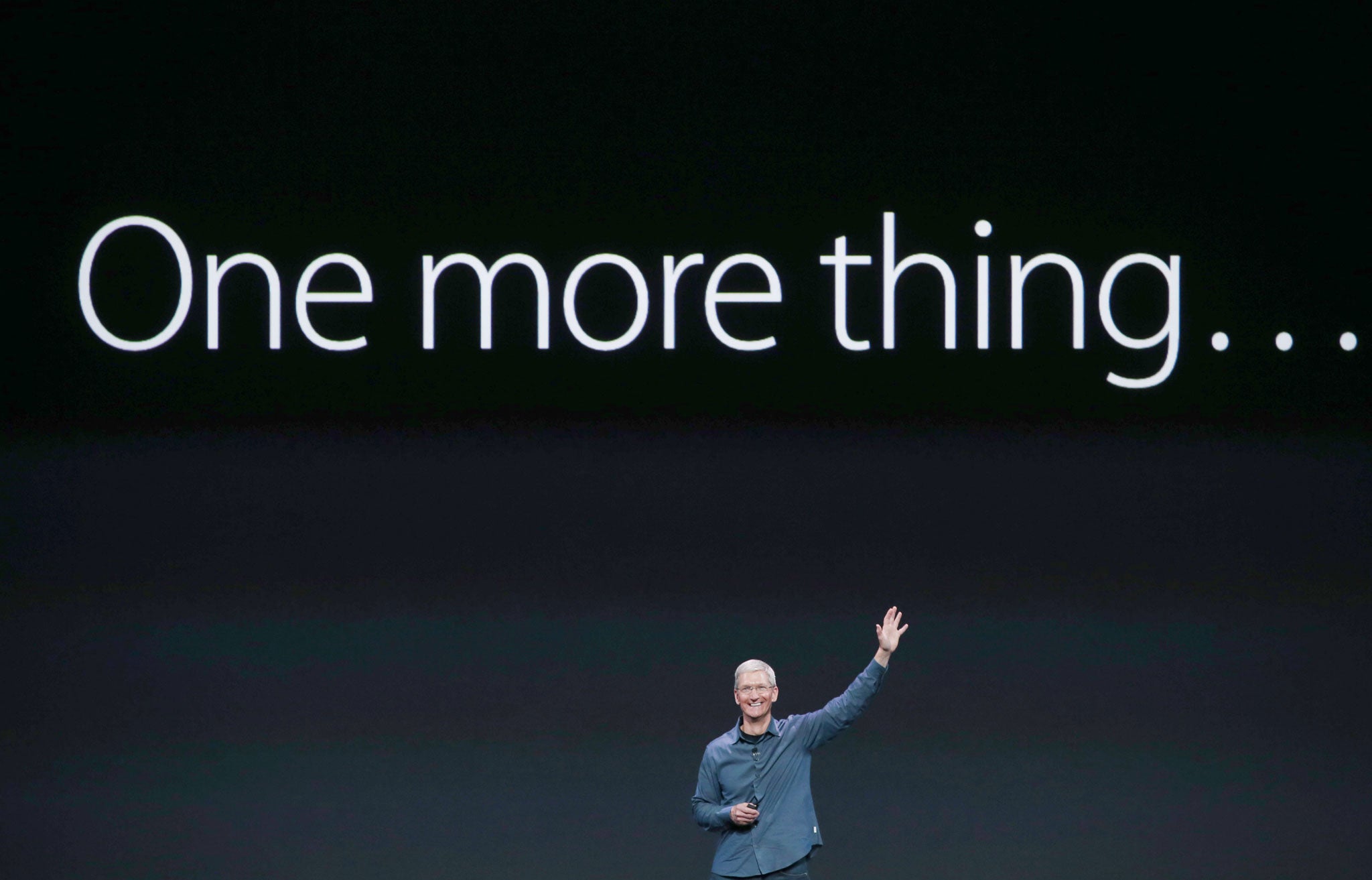Business leaders like Apple's Tim Cook must stop being one thing in public and another in private
Too many firms that pride themselves on their LGBT policies have been led by people too scared to go public


Eight years ago, I outed the businessman and broadcaster Charles Allen. I’d known the then boss of ITV for some time, we were friends, and I interviewed him for Management Today magazine.
In the piece I wrote, “he has a silky smooth manner, is gay, has a long-time architect partner, and loves the arts…”
When the article appeared, ITV’s PR called. Nice interview, she said, but oh dear, they wished I’d not referred to his homosexuality. No one had ever publicly said he was gay before. I should have checked, and I apologised to Charles. We laugh about it now.
It says much about prevailing attitudes within the corporate world that the head of one of our biggest companies, even one in the creative and media sector, felt the need to mask his sexuality. It was shocking.
Worse is the fact that in 2014, not much has changed.
The decision to come out “wasn’t an easy choice”, said Apple’s chief executive Tim Cook, in his recent announcement. In fact, he was outed earlier this year on a TV panel discussion about the new book, The Glass Closet, by John Browne, the homosexual former head of BP.
Browne’s tome is subtitled: “Why Coming Out is Good Business”. He makes the point that gays in the Western world enjoy greater acceptance and legal protection than ever before. Yet, as he also admits, regrettably he did not come out by choice.
Browne, Allen and Cook. All worked for firms that prided themselves on being sophisticated and modern, on their LGBT equality and inclusivity policies. Yet the heads of those very same corporations were too scared to go public themselves.
The reason is that the business world says one thing publicly, and behaves quite differently in private. Browne quotes a City head-hunter who wished to remain anonymous: “The point of recruiting people to boards is people wanting kindred spirits. That may well exclude people who are not identical to the people who are recruiting them.”
The heavily male, machismo culture even reaches the gents toilets – Browne describes how he has seen male directors attempt to close deals while standing at the urinal, such is their determination to exclude female directors.
Shamefully, there is only one openly gay chief executive, Christopher Bailey of Burberry, in the FTSE 100. By rights, based on around 5 per cent of the population being gay, there should be five, and 25 in the US’s equivalent Fortune 500 ranking.
In an effort to close the gap, a network aimed at senior executives, OUTstanding In Business, has been set up. One panel member is Liz Bingham, managing partner for people and talent at Ernst & Young. She said her career had “absolutely flourished” since she came out because it allowed her to “be myself at work”.
Like Bingham, Paul Reed, a chief executive at BP, said: “My experience is that it [coming out] made no difference whatsoever to how I was perceived by colleagues.”
Somehow, that message has got to reach the closet homosexuals running our biggest companies. It’s no good their employers saying one thing in public, and them behaving differently in private. We urgently need more Allens, Brownes, Cooks and Baileys, and we need them to come out by their own volition, at a time of their choosing.
Join our commenting forum
Join thought-provoking conversations, follow other Independent readers and see their replies
Comments
Bookmark popover
Removed from bookmarks